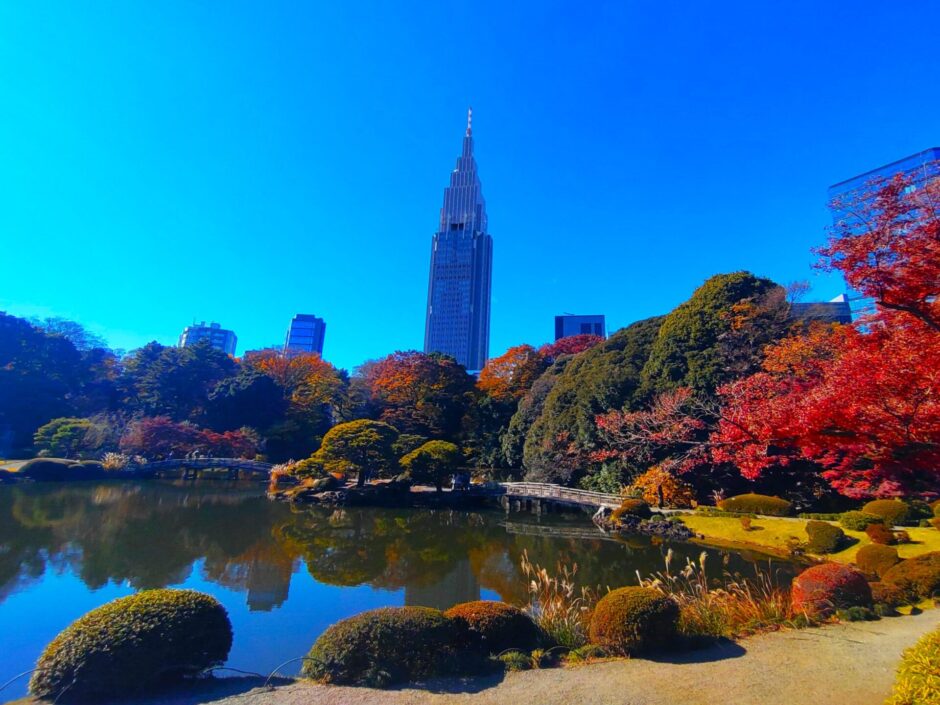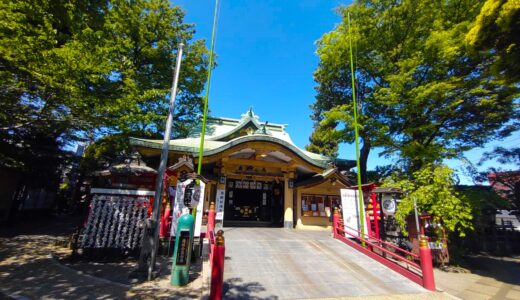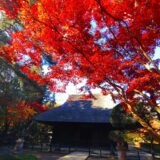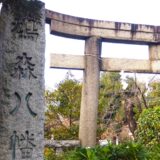目次
- 【Shinjuku Gyoen summary】
- 【Shinjuku Gyoen Shibuya River Headwaters, Lower Pond】South Area
- 【Shinjuku Gyoen Former Goryotei (Taiwan Pavilion)】West Area
- 【Shinjuku Gyoen Japanese-style garden】West Area
- 【Shinjuku Gyoen former Western-style house, resting place】North Area
- 【Shinjuku Gyoen Tropical Plant Conservatory】North Area
- 【Shinjuku Gyoen Landscape and landscaped gardens】East Area
- 【Shinjuku Gyoen Nearby attractions】
- 【Shinjuku Gyoen Access】
- Manager’s Comments
- Shinjuku Gyoen
【Shinjuku Gyoen summary】
Shinjuku Gyoen is the former residence of the Naito family, the feudal lord of Takato in Shinshu, and was used as an imperial estate and farm in the early Meiji period. The vast land was developed into a Japanese garden and a formal garden in 1906 and named “Shinjuku Gyoen”. In spring, approximately 900 cherry trees bloom, and in fall, visitors can enjoy the autumn leaves. There is also a Starbucks, stylish restaurants, and cafes in the park, and many visitors spend a whole day relaxing in this urban oasis. Admission is 500 yen.
![Shinjuku Gyoen [Tokyo] DSC 1692 2 1024x768 - Shinjuku Gyoen [Tokyo]](https://japan-shrine.info/wp-content/uploads/DSC_1692-2-1024x768.jpg)
【Shinjuku Gyoen Shibuya River Headwaters, Lower Pond】South Area
![Shinjuku Gyoen [Tokyo] DSC 1740 1024x768 - Shinjuku Gyoen [Tokyo]](https://japan-shrine.info/wp-content/uploads/DSC_1740-1024x768.jpg)
Shinjuku Gyoen has three ponds: the Upper Pond, the Middle Pond, and the Lower Pond, and the headwaters of the Shibuya River are located near the Lower Pond. Especially around the Lower Pond, the autumn leaves are very beautiful. It is close if you enter from the Sendagaya Gate.
![Shinjuku Gyoen [Tokyo] DSC 1742 1024x768 - Shinjuku Gyoen [Tokyo]](https://japan-shrine.info/wp-content/uploads/DSC_1742-1024x768.jpg)
This is a recommended area in Shinjuku Gyoen in autumn.
【Shinjuku Gyoen Former Goryotei (Taiwan Pavilion)】West Area
The building was donated in 1927 by Japanese volunteers living in Taiwan at that time to commemorate the Emperor Showa’s wedding. It is one of the few authentic Chinese buildings in Japan that incorporates the characteristics of the Bin Nan style used in Taiwan since the middle of the Qing Dynasty.
![Shinjuku Gyoen [Tokyo] DSC 1702 1024x768 - Shinjuku Gyoen [Tokyo]](https://japan-shrine.info/wp-content/uploads/DSC_1702-1024x768.jpg)
Designed by architect Matsunosuke Moriyama, who was active in Taiwan under Japanese rule, the building is so beautifully maintained that it is hard to believe that it was completed in 1927.
![Shinjuku Gyoen [Tokyo] DSC 1695 1024x768 - Shinjuku Gyoen [Tokyo]](https://japan-shrine.info/wp-content/uploads/DSC_1695-1024x768.jpg)
The view from inside the building and from the outside was beautiful.
【Shinjuku Gyoen Japanese-style garden】West Area
![Shinjuku Gyoen [Tokyo] DSC 1706 1 1024x768 - Shinjuku Gyoen [Tokyo]](https://japan-shrine.info/wp-content/uploads/DSC_1706-1-1024x768.jpg)
West area of Shinjuku Gyoen. It is a circular garden with a pond at its center.
![Shinjuku Gyoen [Tokyo] DSC 1703 1024x768 - Shinjuku Gyoen [Tokyo]](https://japan-shrine.info/wp-content/uploads/DSC_1703-1024x768.jpg)
I think this place is a set view with Docomo Tower. It seems to be a popular spot for pilgrims to the sacred site of “Garden of Words” directed by Makoto Shinkai. Therefore, fresh green season (summer) is recommended.
【Shinjuku Gyoen former Western-style house, resting place】North Area
![Shinjuku Gyoen [Tokyo] DSC 1711 1024x768 - Shinjuku Gyoen [Tokyo]](https://japan-shrine.info/wp-content/uploads/DSC_1711-1024x768.jpg)
The former Western-style building was built in 1896 (Meiji 29) as a resting place for the Imperial Family when they admired the plants in the greenhouses in the Shinjuku Imperial Garden. It is now designated as a Western-style building and an Important Cultural Property, and please note that photography is not allowed inside. Some people may mistake the name of the building as a resting place for tourists, but it is a cultural asset. You can enter only on holidays.
【Shinjuku Gyoen Tropical Plant Conservatory】North Area
![Shinjuku Gyoen [Tokyo] DSC 1719 1024x768 - Shinjuku Gyoen [Tokyo]](https://japan-shrine.info/wp-content/uploads/DSC_1719-1024x768.jpg)
One of the highlights of Shinjuku Gyoen is the Tropical Plant Conservatory. Many tropical plants reminiscent of the tropics are displayed in the vast greenhouse.
![Shinjuku Gyoen [Tokyo] DSC 1722 1024x768 - Shinjuku Gyoen [Tokyo]](https://japan-shrine.info/wp-content/uploads/DSC_1722-1024x768.jpg)
The vivid flowers and rare plants line the grounds, and each time you visit, you will discover something new.
![Shinjuku Gyoen [Tokyo] DSC 1728 1024x768 - Shinjuku Gyoen [Tokyo]](https://japan-shrine.info/wp-content/uploads/DSC_1728-1024x768.jpg)
Autumn leaves near the entrance of the Tropical Plant Conservatory were at their best. (Early December)
【Shinjuku Gyoen Landscape and landscaped gardens】East Area
![Shinjuku Gyoen [Tokyo] DSC 1729 1024x768 - Shinjuku Gyoen [Tokyo]](https://japan-shrine.info/wp-content/uploads/DSC_1729-1024x768.jpg)
It is a beautiful symmetrical garden with plane trees lining both sides.
![Shinjuku Gyoen [Tokyo] DSC 1732 1024x768 - Shinjuku Gyoen [Tokyo]](https://japan-shrine.info/wp-content/uploads/DSC_1732-1024x768.jpg)
There is a rose bed surrounding the center of the building, and there were plans to build a palace.
【Shinjuku Gyoen Nearby attractions】
Meiji Shrine, Togo Shrine, Hatomori Hachiman Shrine, Suga Shrine, Hanazono Shrine
【Shinjuku Gyoen Access】
Manager’s Comments
It is a healing park with a variety of attractions located in Shinjuku, a major metropolis in Tokyo. The beautiful scenery is attractive from season to season, and in spring, the park is a popular spot for cherry blossom viewing. Within the vast grounds, there are Western-style gardens and Japanese-style gardens, each with a different atmosphere. Sitting on a bench and reading a book or having a picnic is also recommended. It is a wonderful place to forget the hustle and bustle of the city.
11 Naito-cho, Shinjuku-ku, Tokyo 160-0014, Japan
※Paid parking is available. Shinjuku Gyoen Okido Parking Lot
 Tour of Japanese shrines and temples
Tour of Japanese shrines and temples 

![Shinjuku Gyoen [Tokyo] DSC 1773 520x300 - Shinjuku Gyoen [Tokyo]](https://japan-shrine.info/wp-content/uploads/DSC_1773-520x300.jpg)
![Shinjuku Gyoen [Tokyo] meijijingu1 520x300 - Shinjuku Gyoen [Tokyo]](https://japan-shrine.info/wp-content/uploads/meijijingu1-520x300.jpg)
![Shinjuku Gyoen [Tokyo] DSC 1373 520x300 - Shinjuku Gyoen [Tokyo]](https://japan-shrine.info/wp-content/uploads/DSC_1373-520x300.jpg)

![Shinjuku Gyoen [Tokyo] 93ab9b5baab7c32bcbbfc378fbac7fd2 - Shinjuku Gyoen [Tokyo]](https://japan-shrine.info/wp-content/uploads/sng/93ab9b5baab7c32bcbbfc378fbac7fd2.jpg)
![Shinjuku Gyoen [Tokyo] DSC 0235 150x150 - Shinjuku Gyoen [Tokyo]](https://japan-shrine.info/wp-content/uploads/DSC_0235-150x150.jpg)
![Shinjuku Gyoen [Tokyo] meijijingu1 150x150 - Shinjuku Gyoen [Tokyo]](https://japan-shrine.info/wp-content/uploads/meijijingu1-150x150.jpg)
![Shinjuku Gyoen [Tokyo] DSC 0348 150x150 - Shinjuku Gyoen [Tokyo]](https://japan-shrine.info/wp-content/uploads/DSC_0348-150x150.jpg)
![Shinjuku Gyoen [Tokyo] DSC 1558 150x150 - Shinjuku Gyoen [Tokyo]](https://japan-shrine.info/wp-content/uploads/DSC_1558-150x150.jpg)

